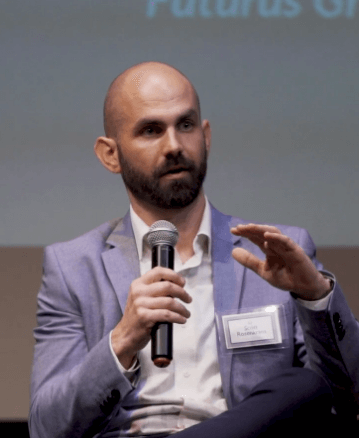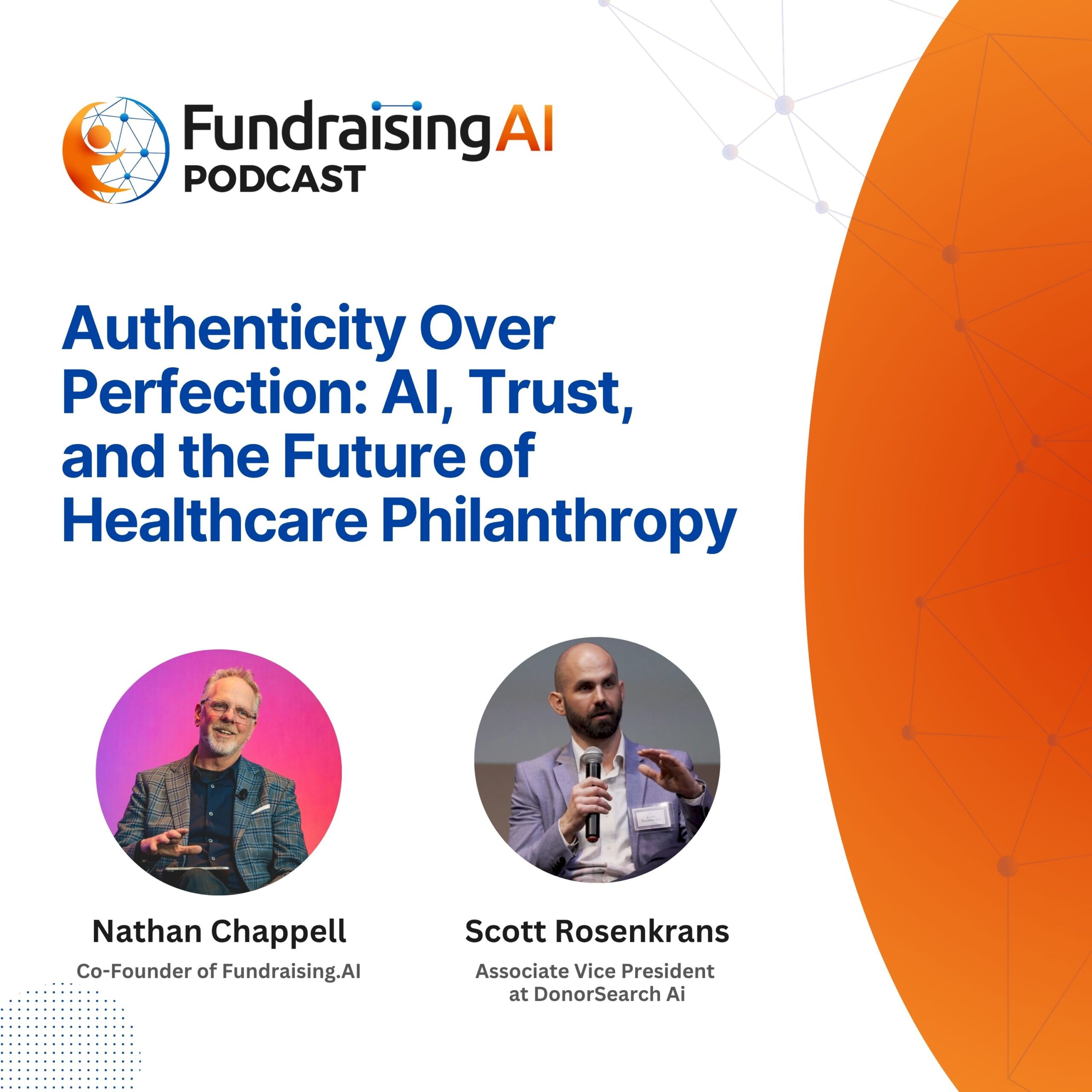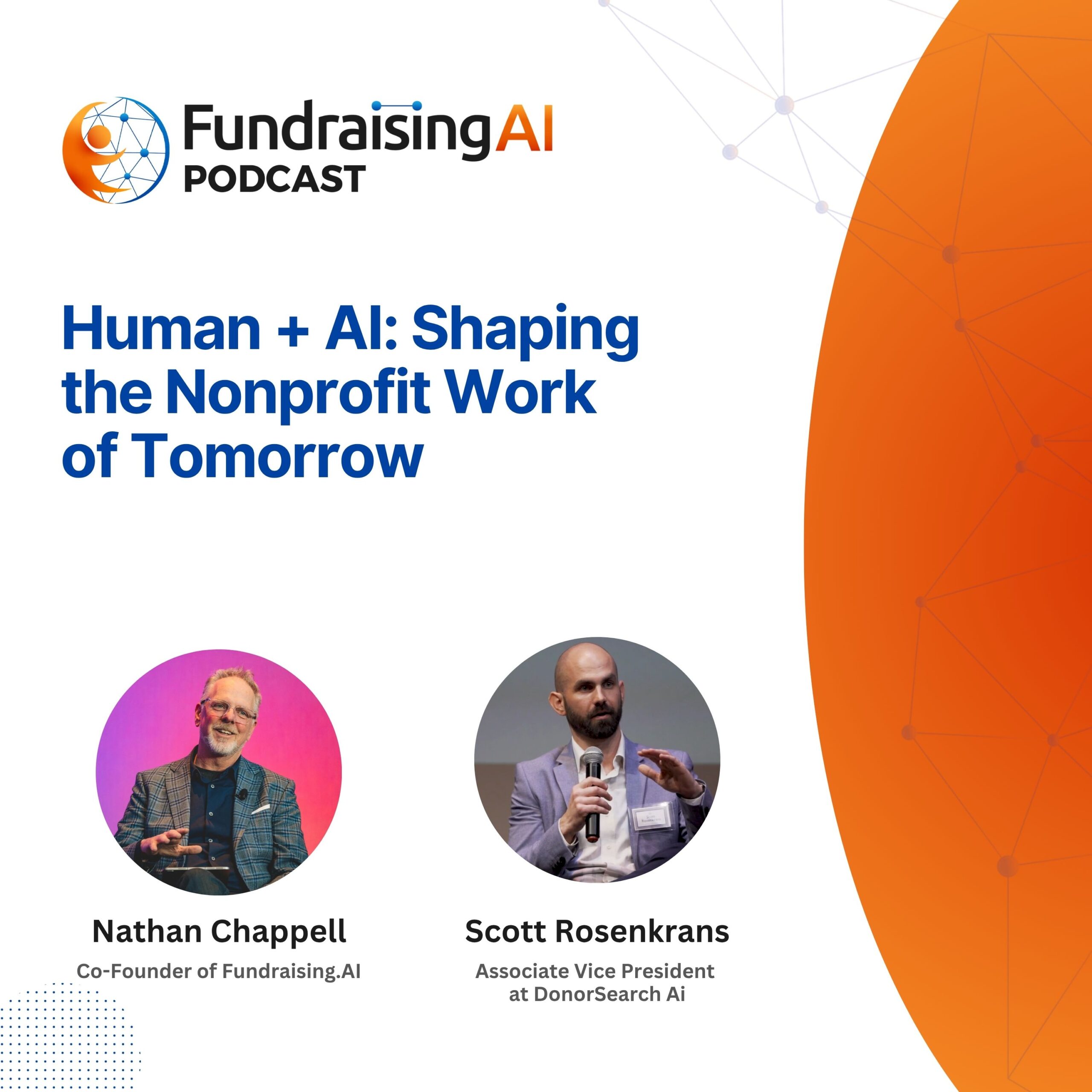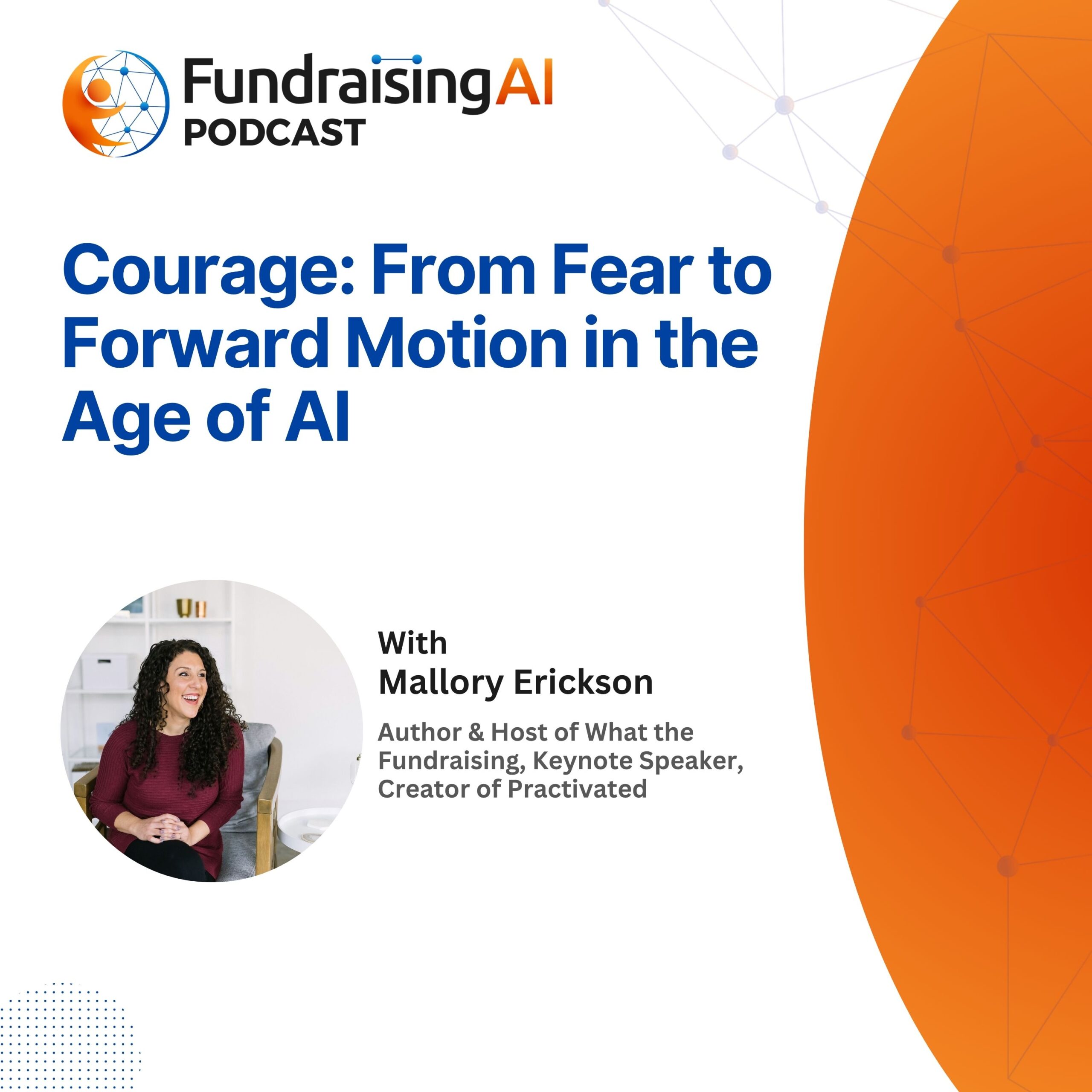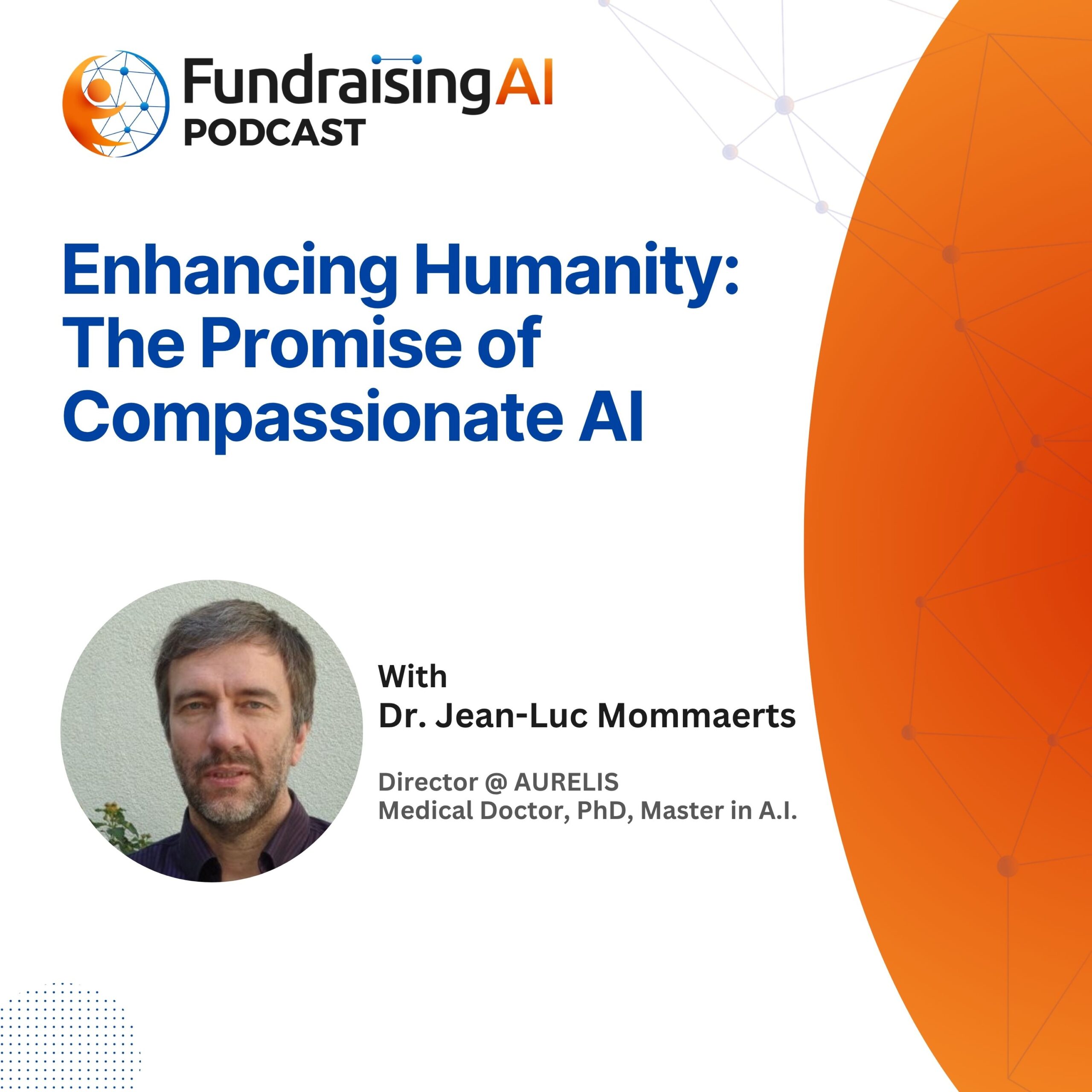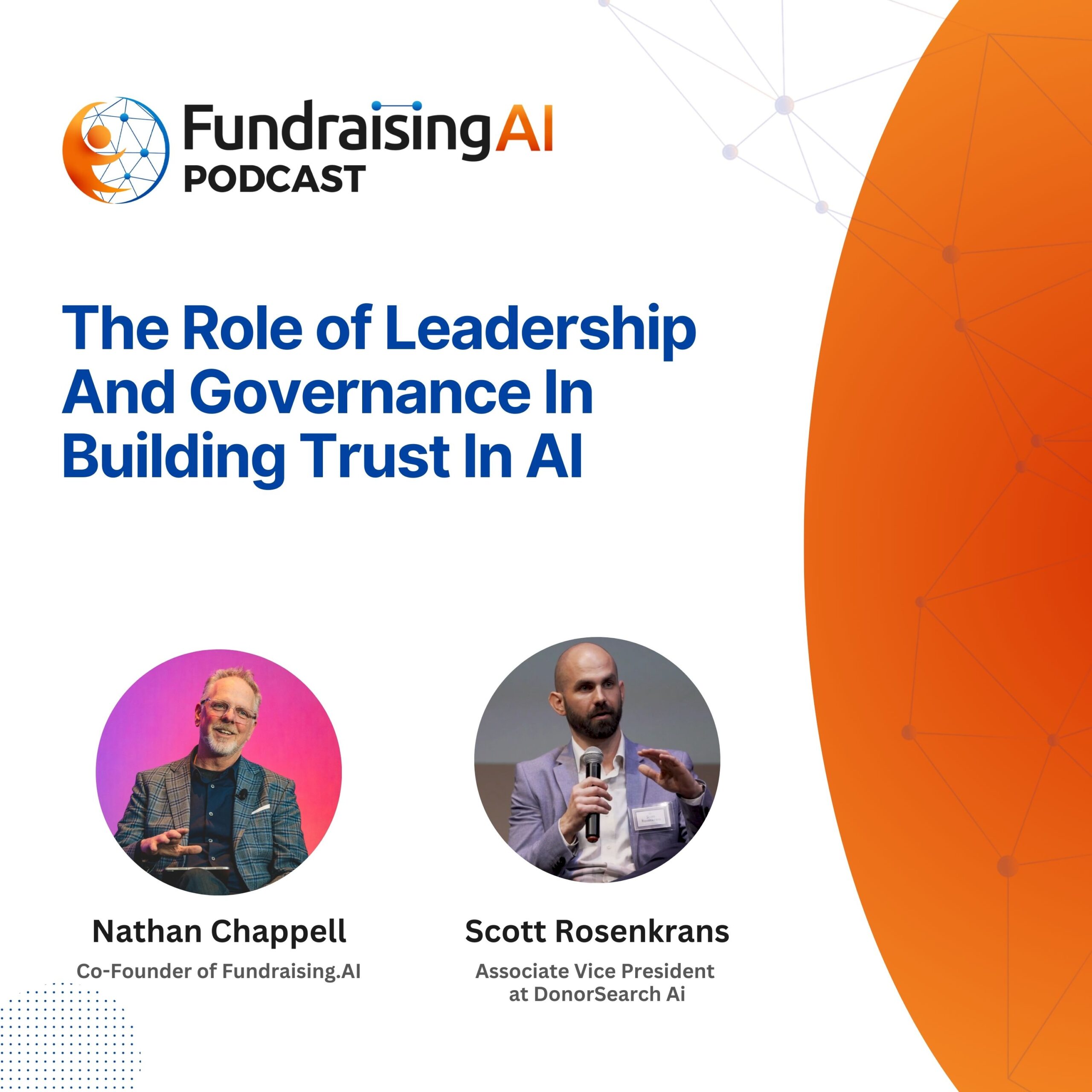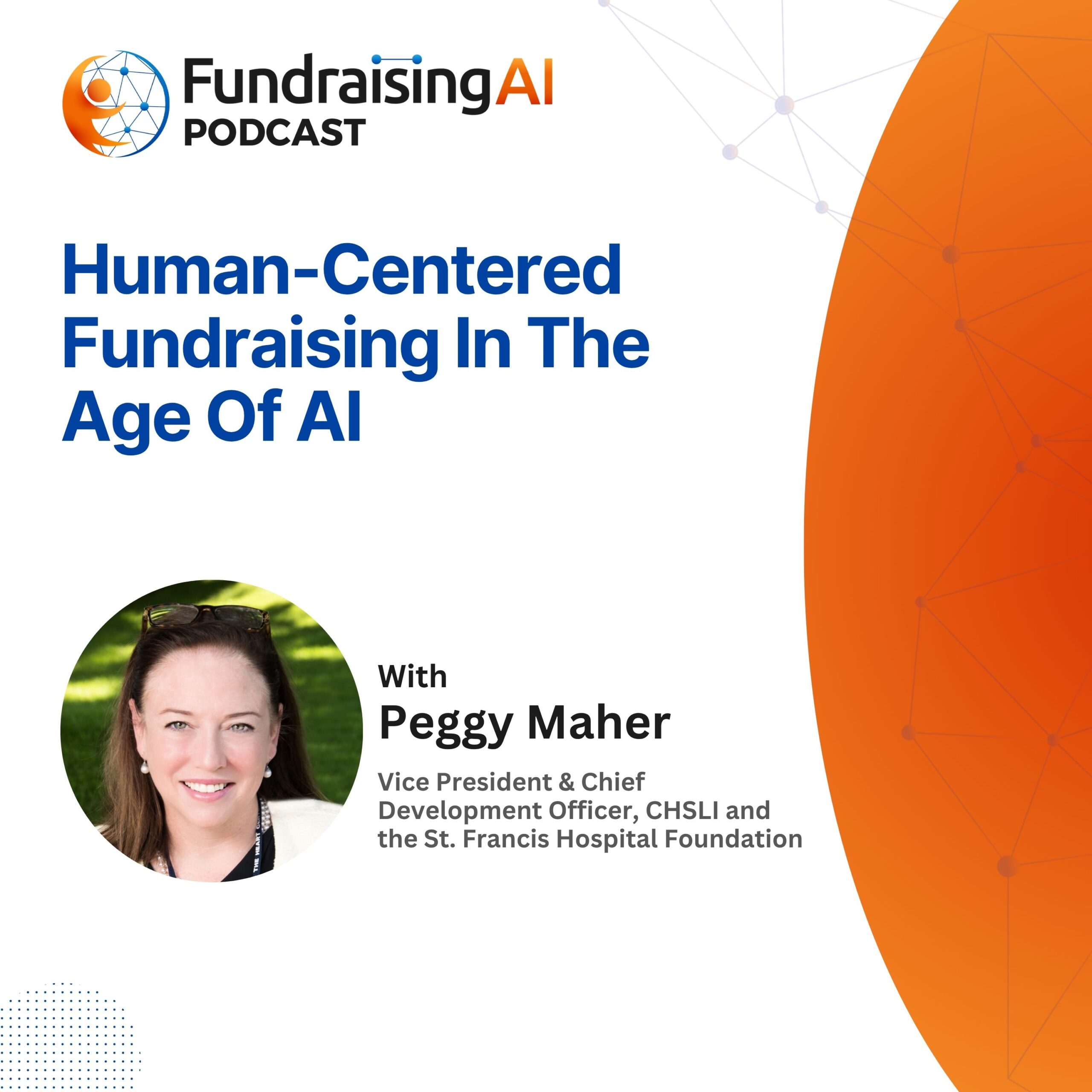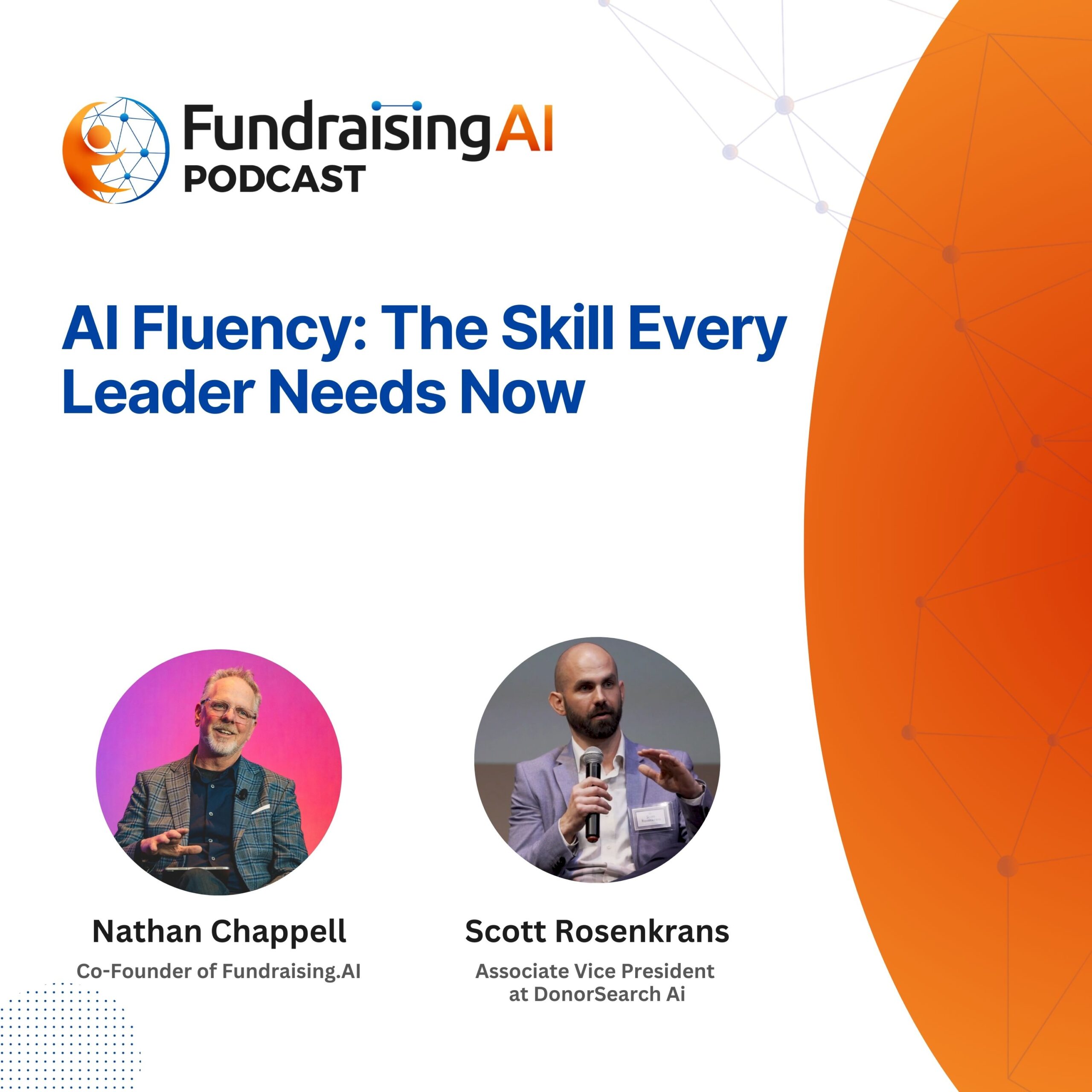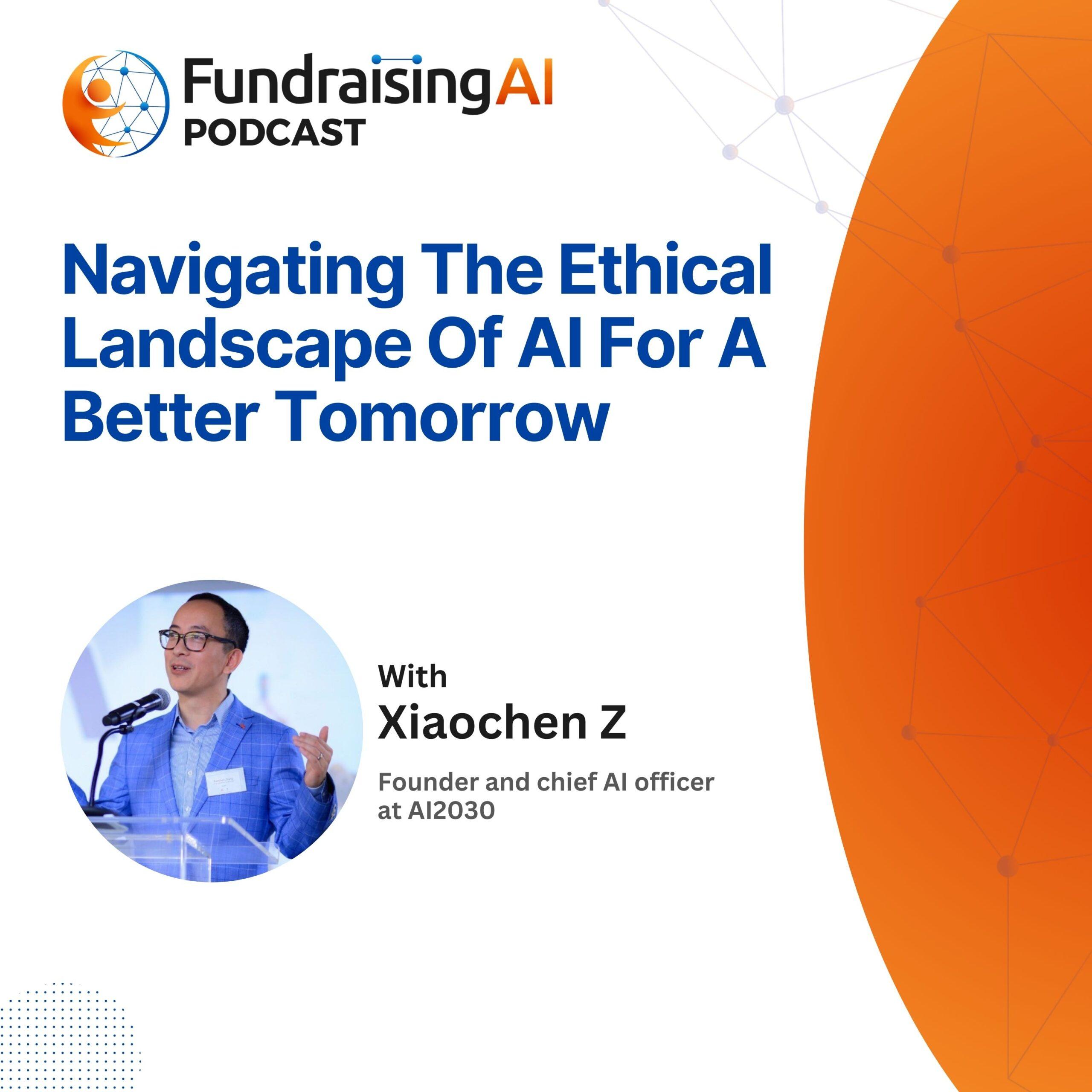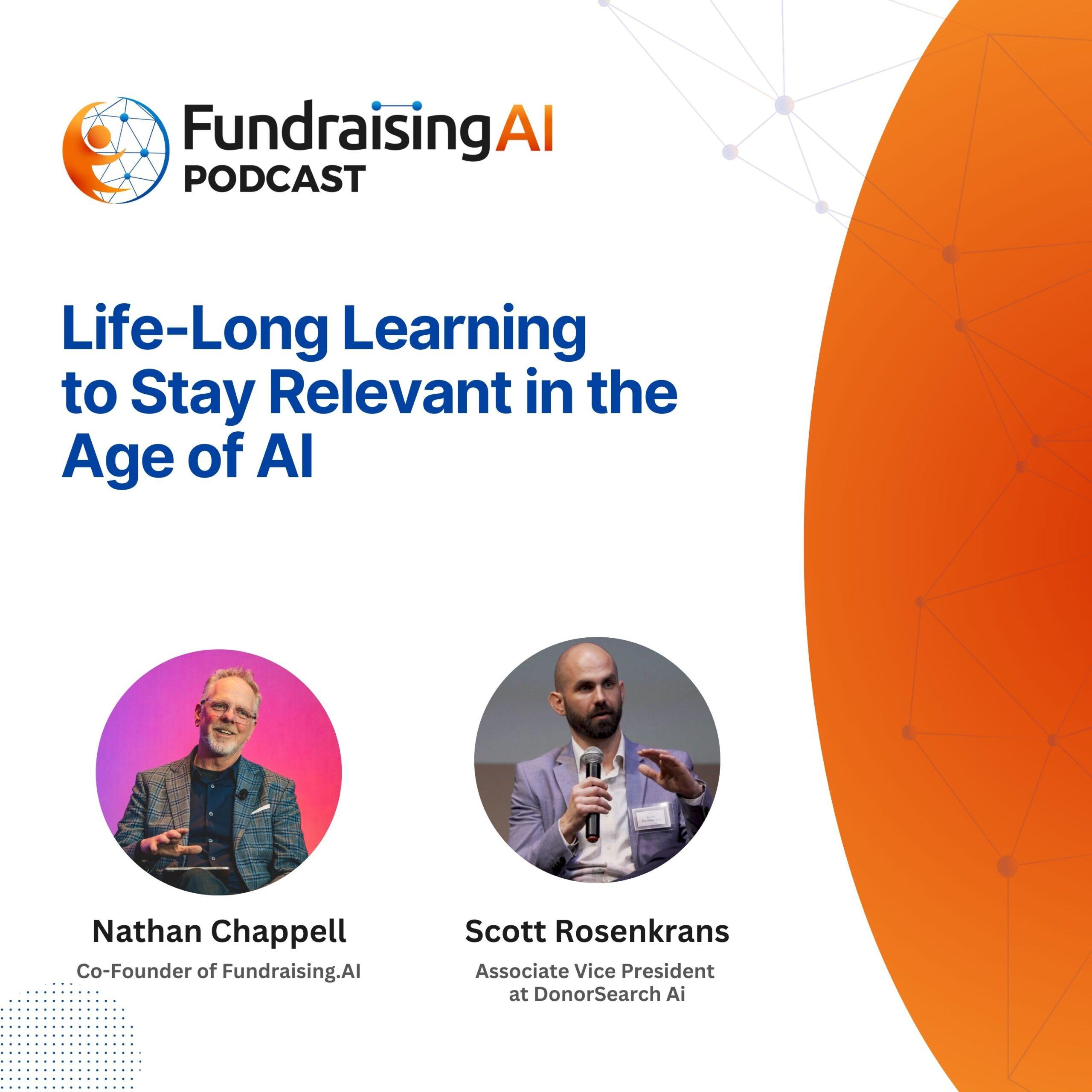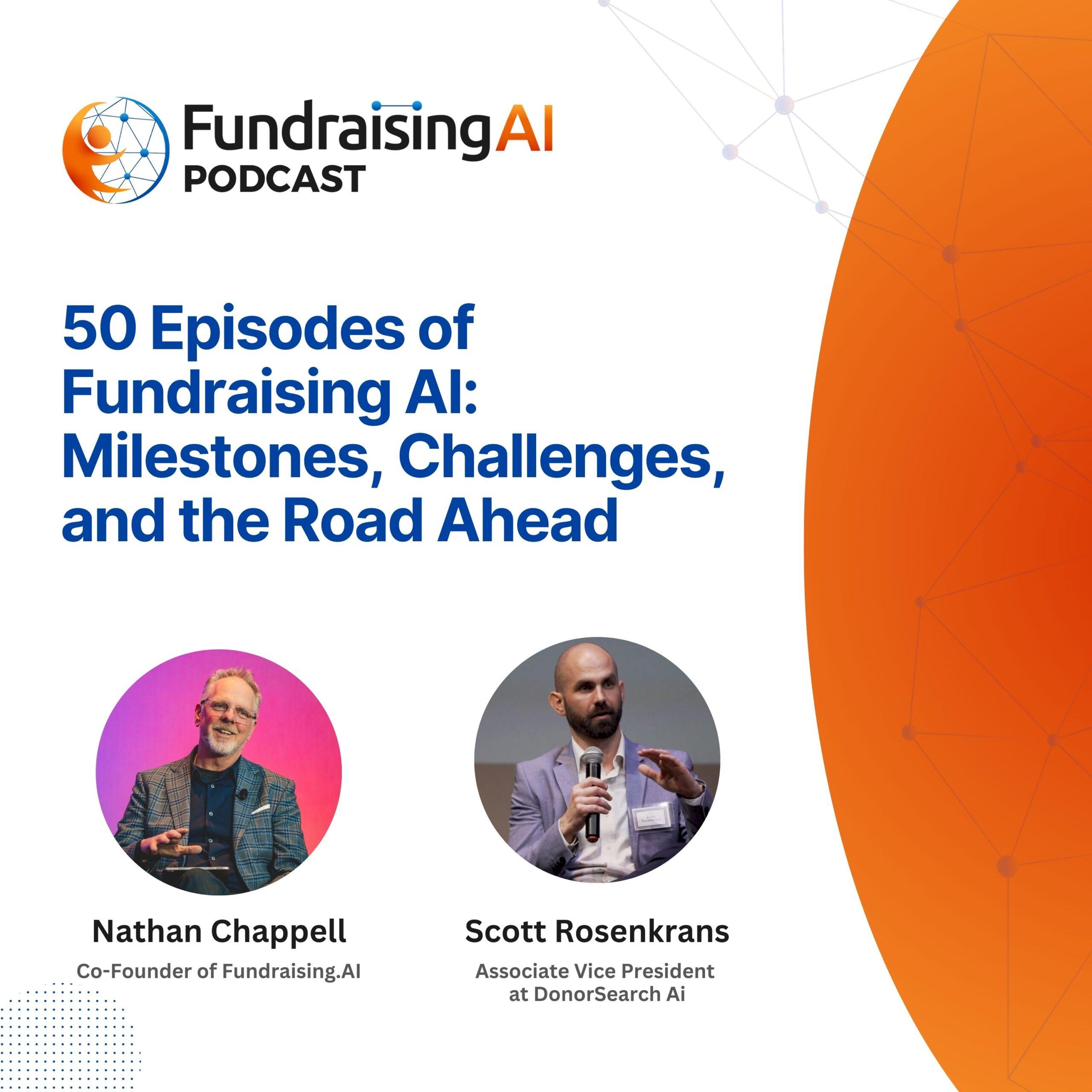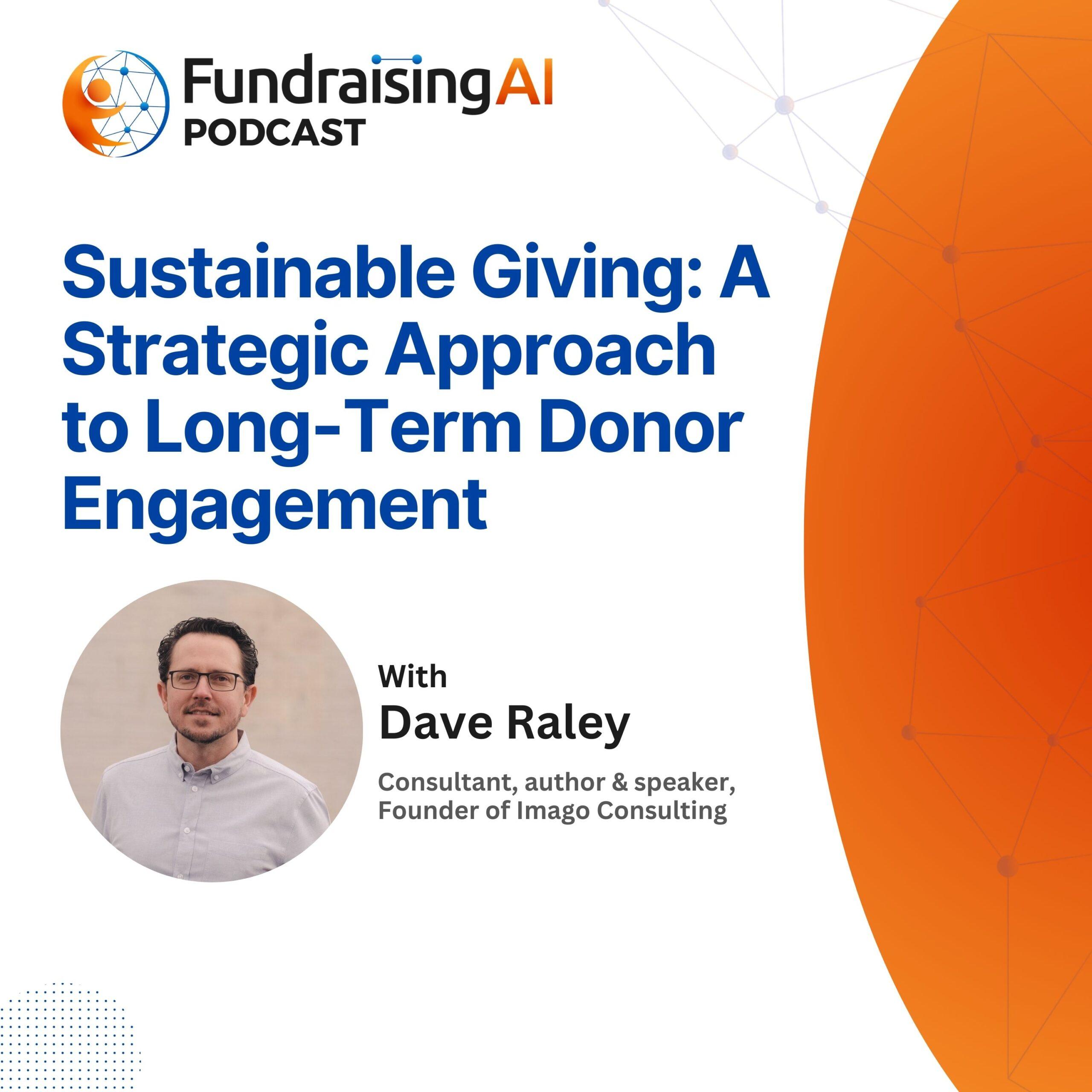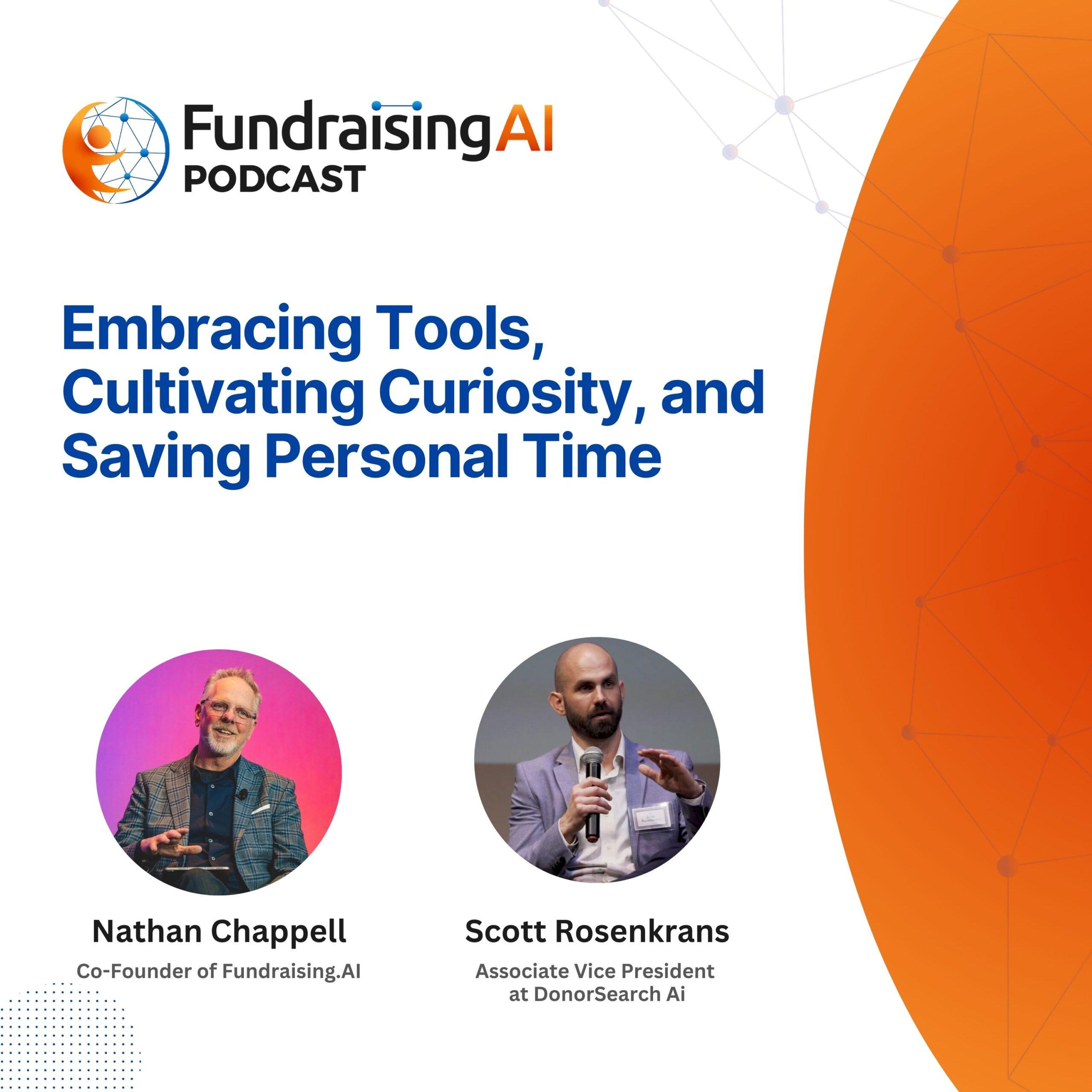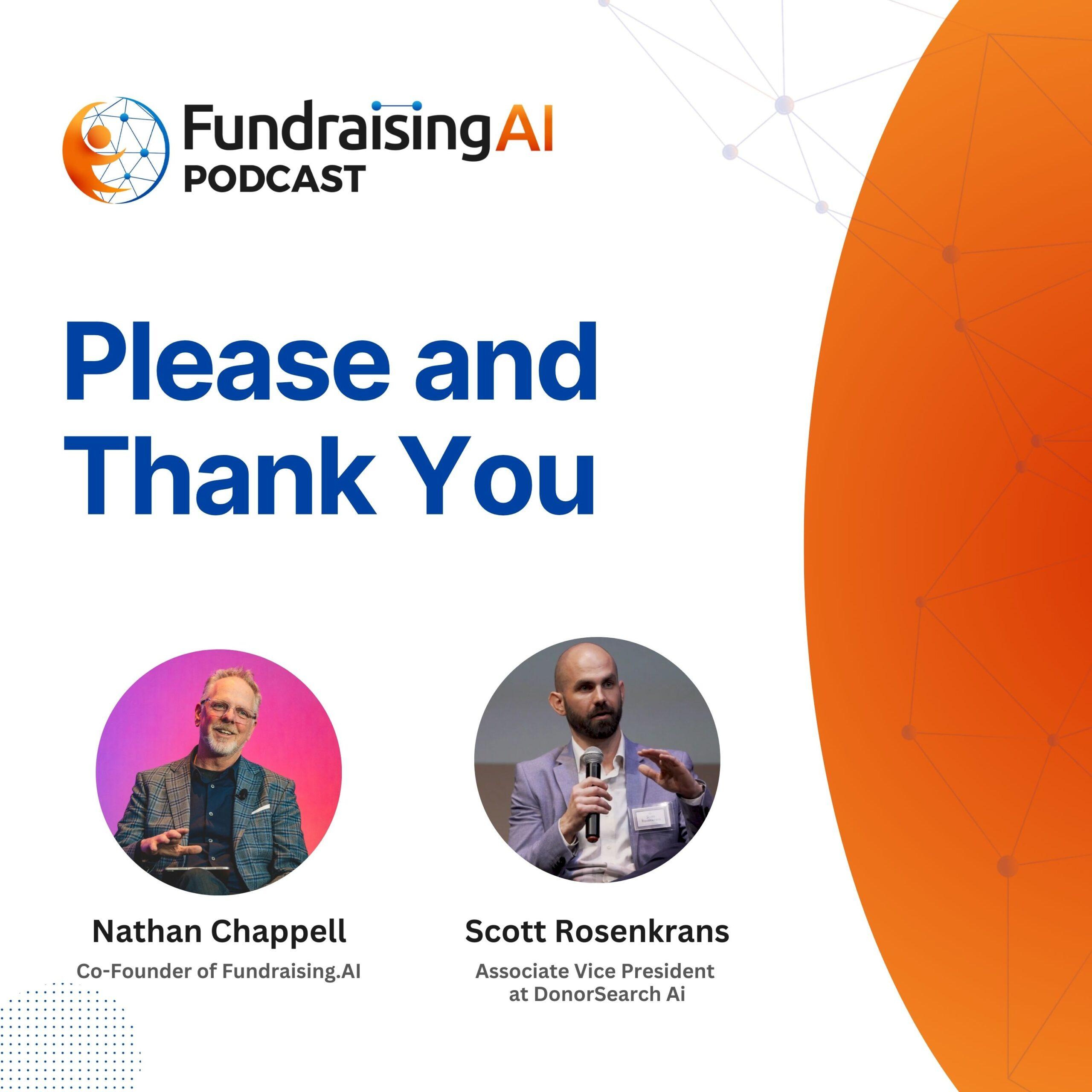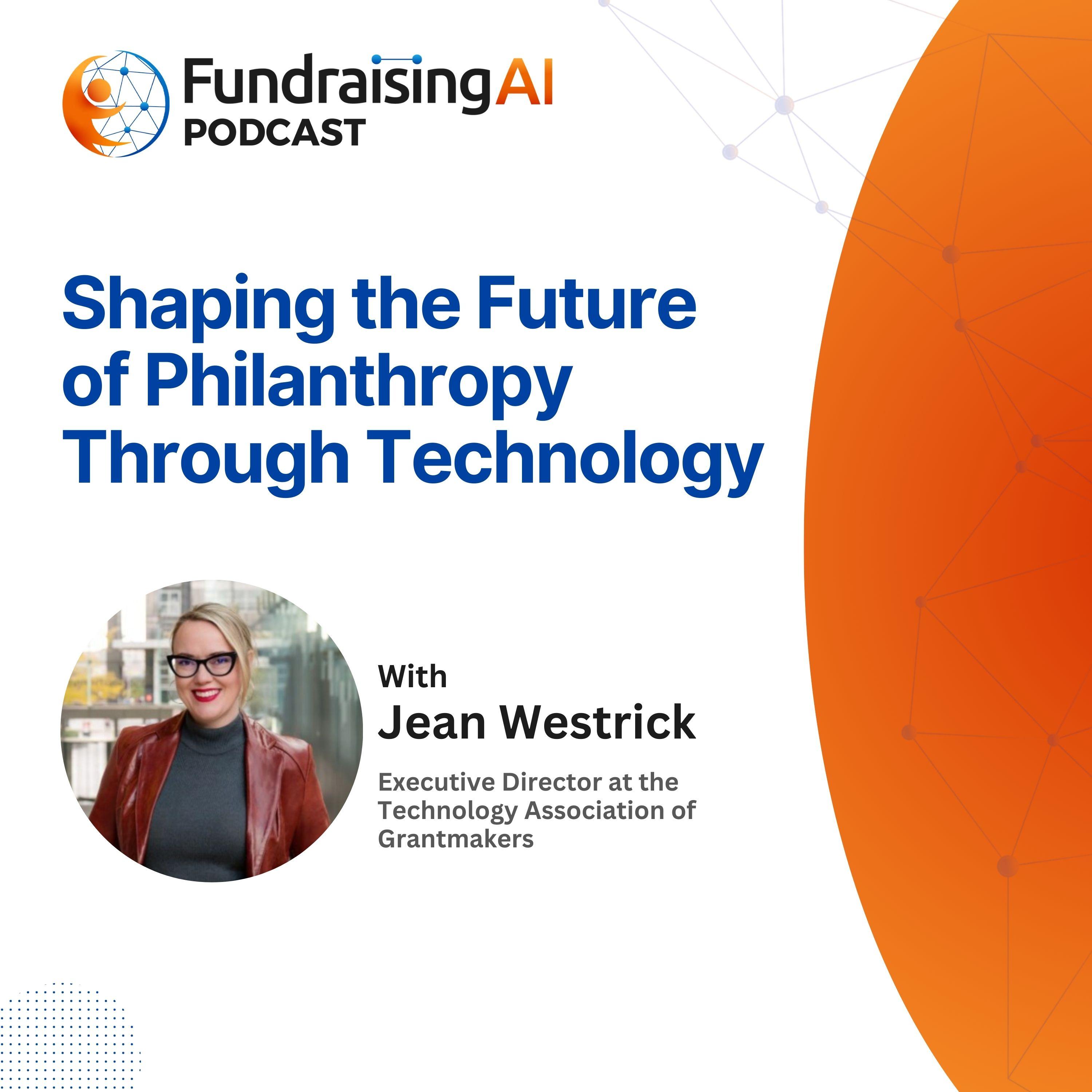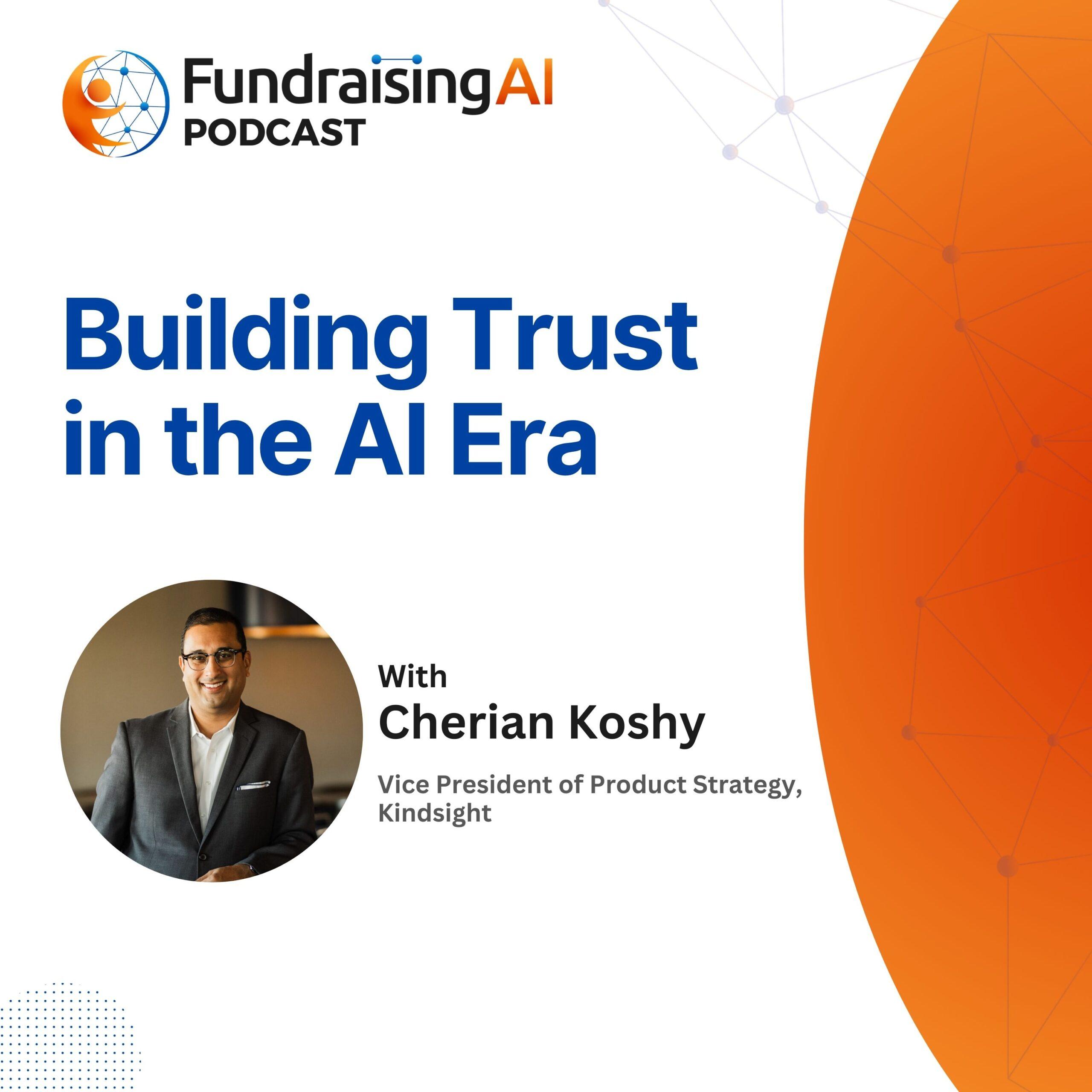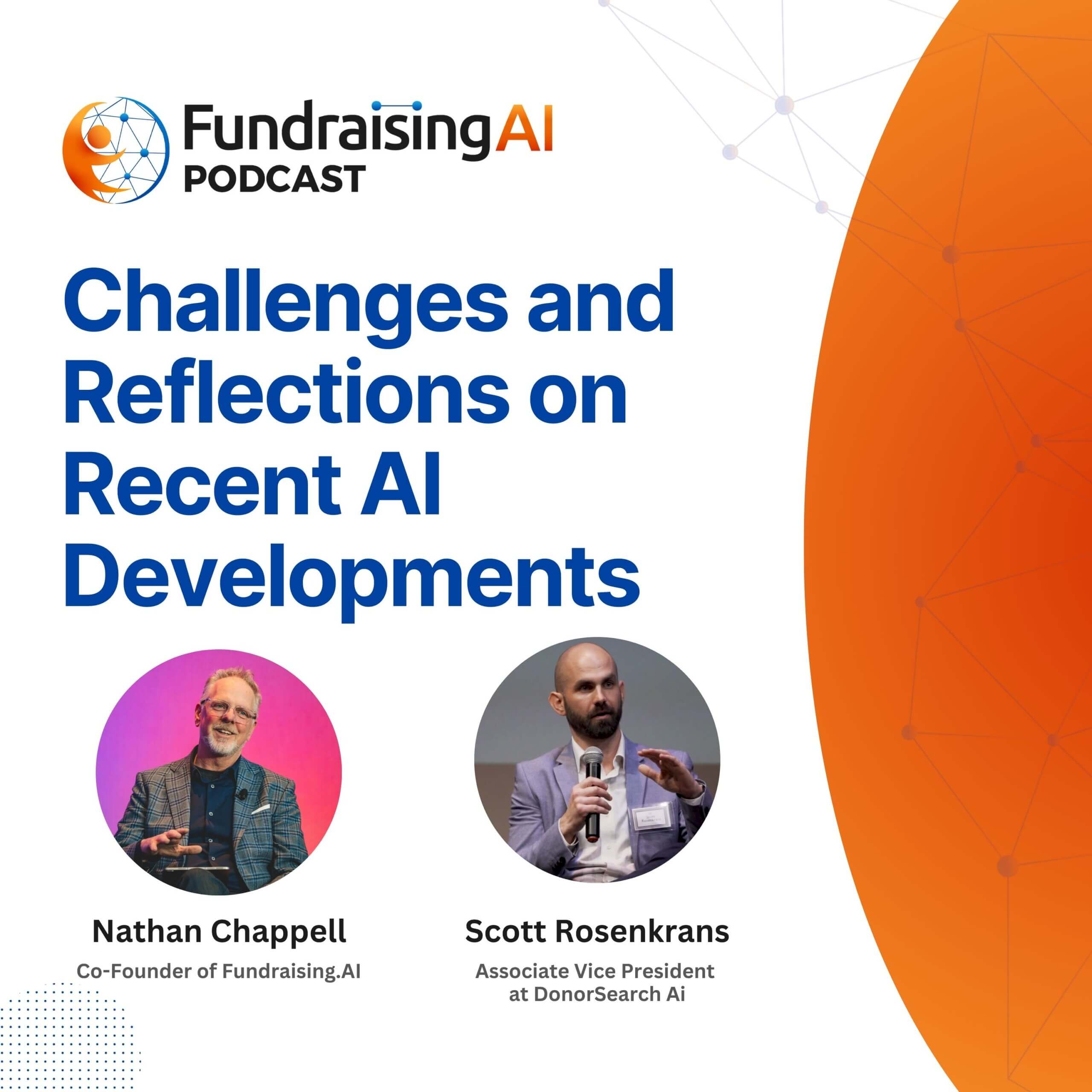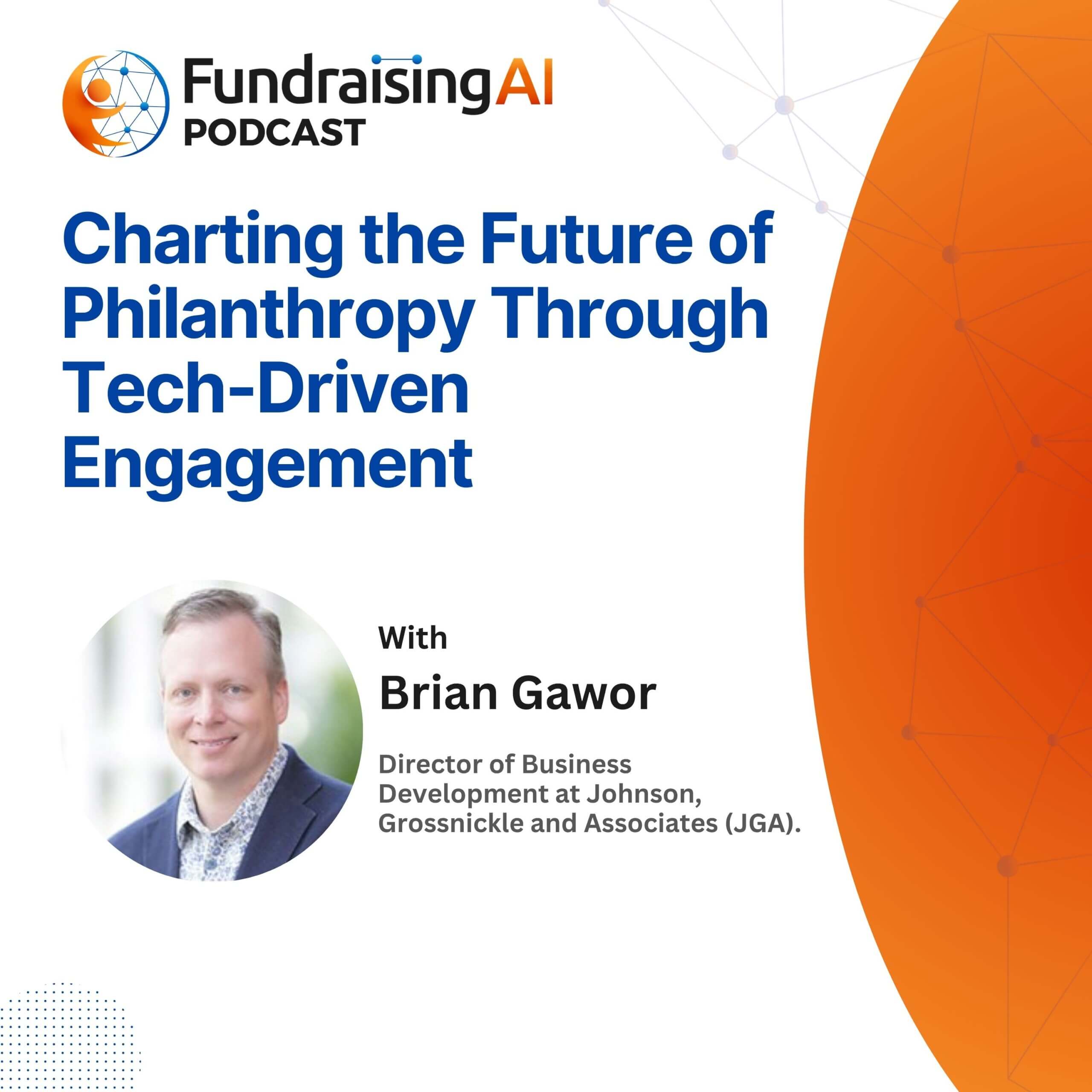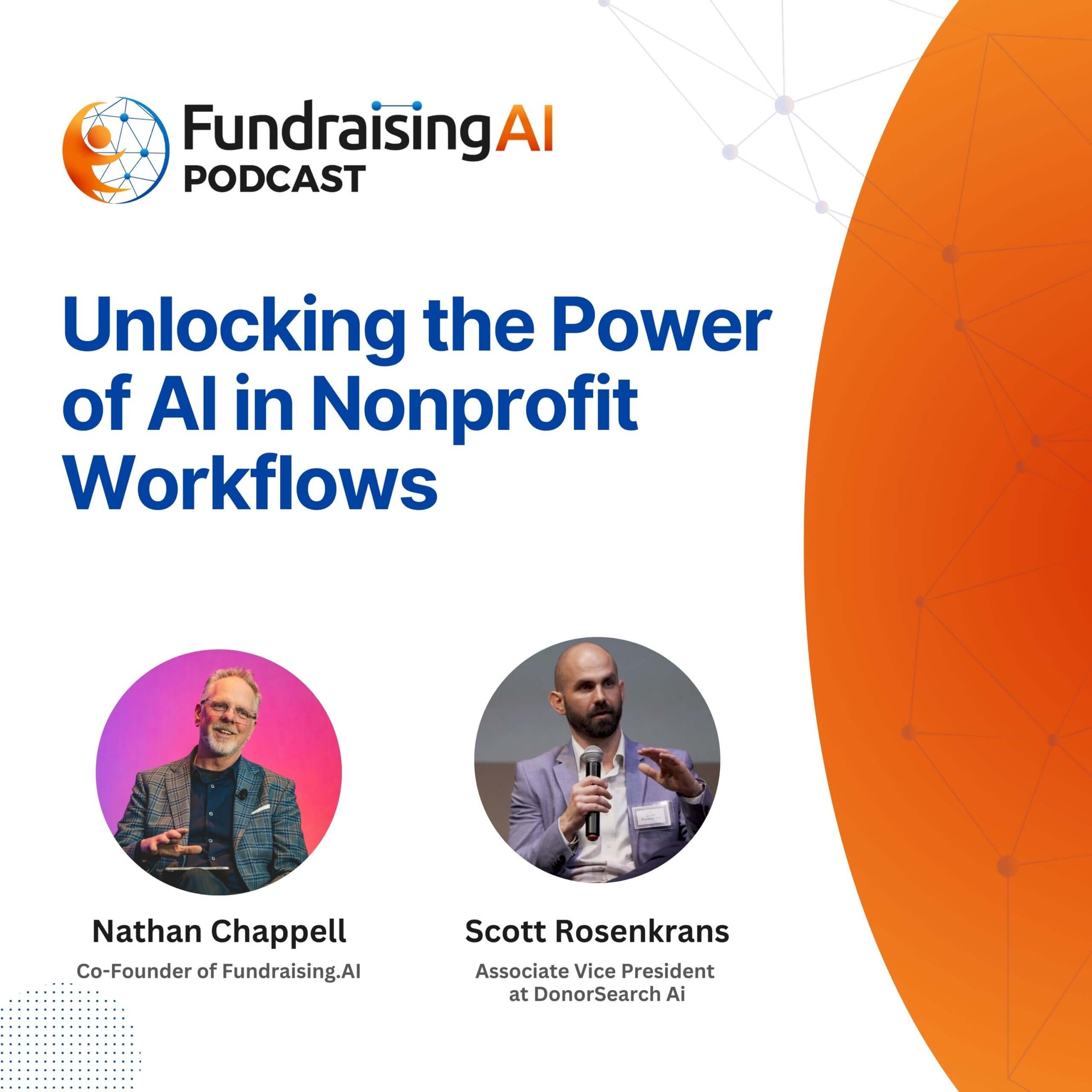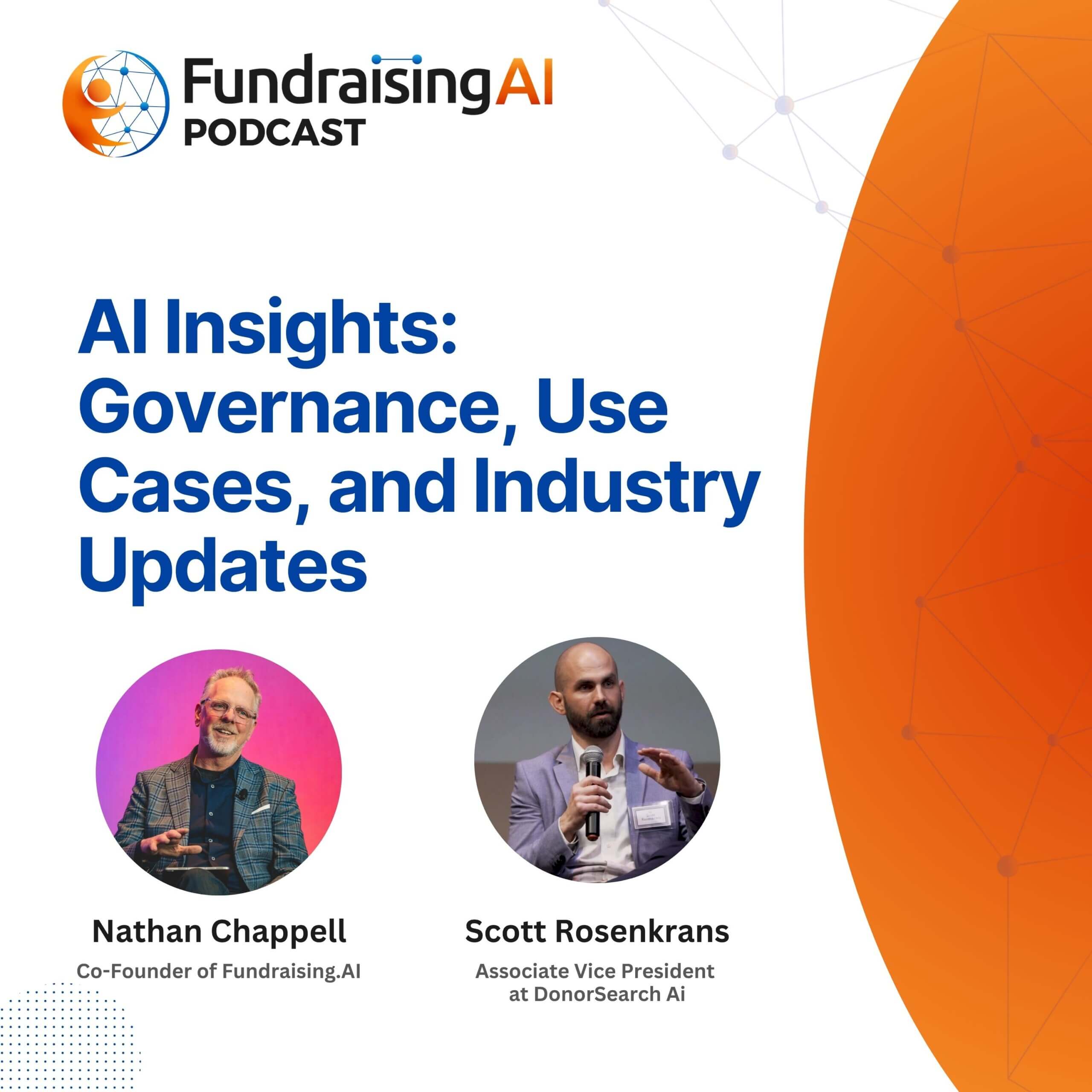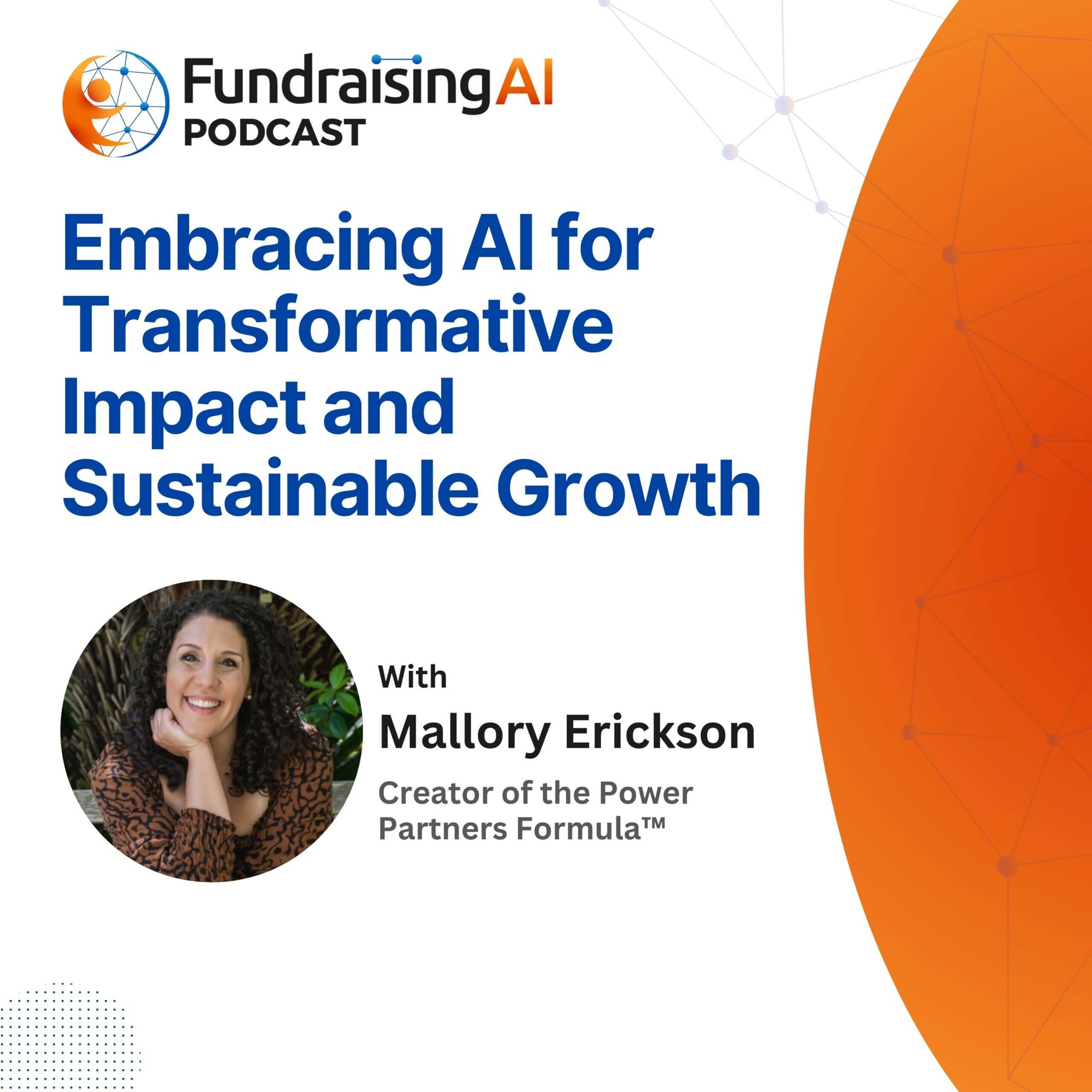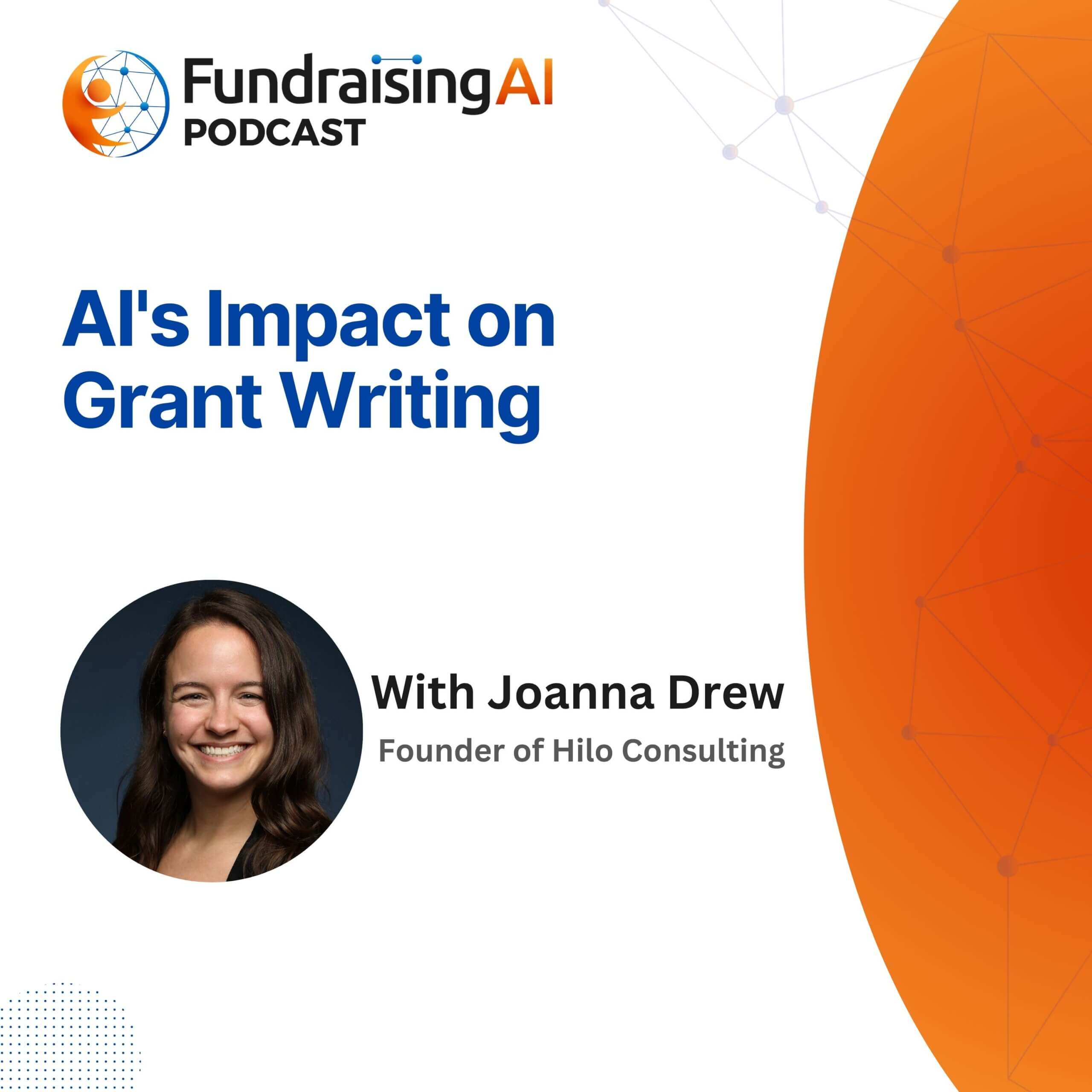Fundraising.AI
Episode 41
Episode 41 - Manipulation vs. Rationale: The need for ethical use of AI
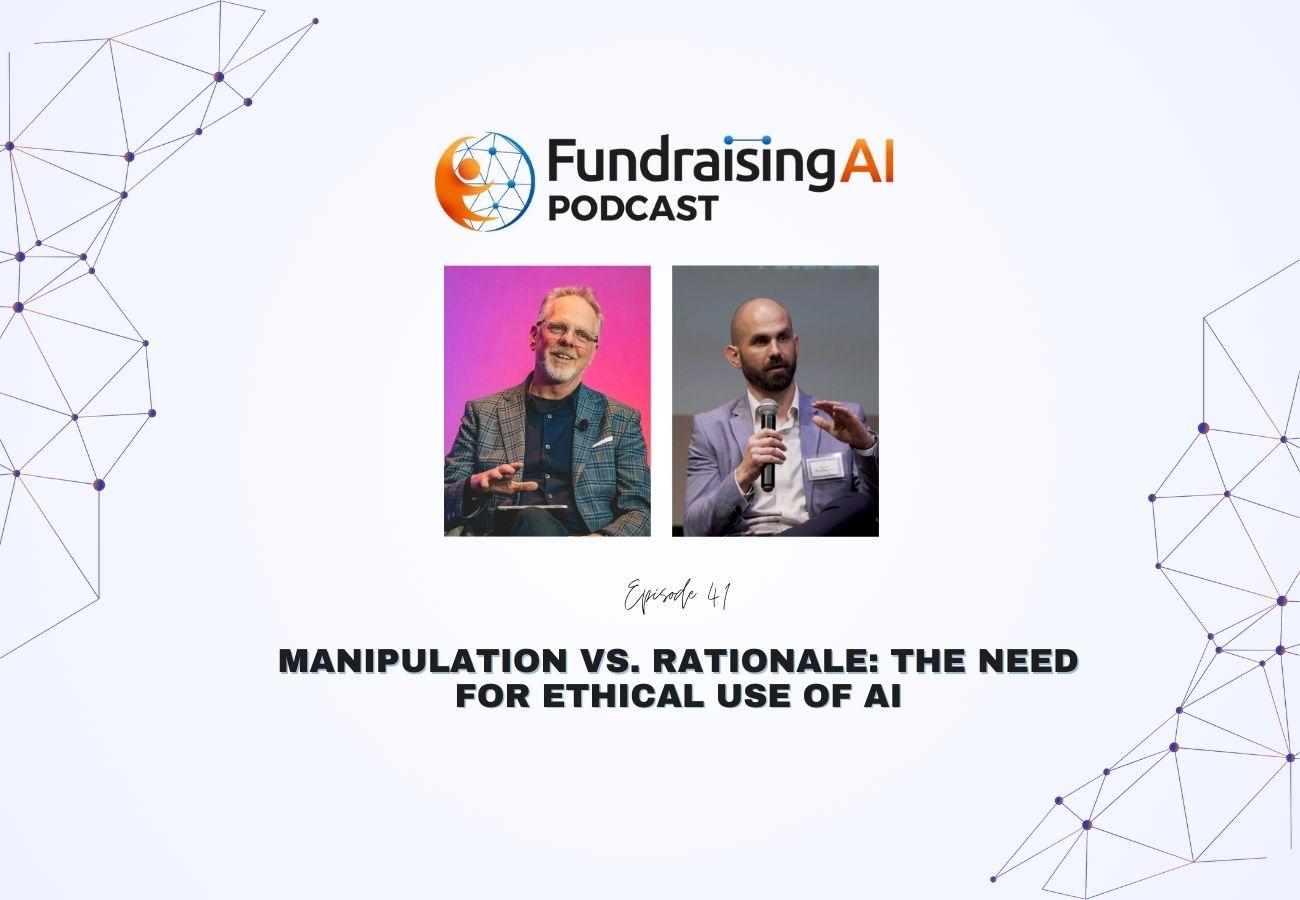
THIS EPISODE IS SPONSORED BY
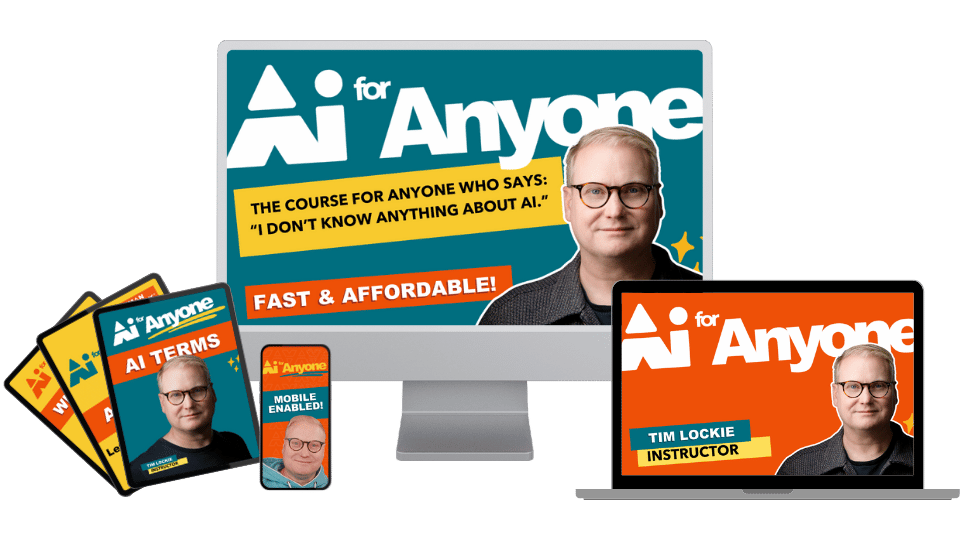
WATCH ON YOUTUBE

Listen To The Episode
OVERVIEW
The evolution of AI has made our work easy and quick. But it’s crucial that we are using it for the right reasons. There’s also a dark side to using AI that most people aren’t aware of. That being said, we must research those who develop these technologies and find out how they are created.
Nathan and Scott started today’s conversation by looking back at the fundraising AI’s second global summit and expressing their gratitude to those who attended and those who helped behind the scenes. Moving on, Nathan talks about the urgent need for innovation in the non-profit sector, saying that we must do it mindfully and work together. Nathan and Scott also share their opinions on the evolution of AI and its current status, where you get overwhelming results with a simple conversation with AI models like NotebookLM. They also talk about the dark side of AI, where you can be manipulated without you knowing. Here, Nathan explains that while people have a lot of opportunities to learn different things in different ways with AI, that doesn’t mean it comes without any cost. They also share their opinions on using AI for the right reasons. You have to keep reminding yourself that you are using AI for the right reasons and that it won’t cause harm to others.


EPISODE HIGHLIGHTS
- [02:05] Synopsis of Fundraising AI's second global summit.
- [03:47] Lack of education on technology.
- [12:27] Enhancing efficiency and addressing demand with AI.
- [13:37] The urgent need for innovation in the nonprofit sector.
- [20:07] The evolution of AI.
- [23:23] NotebookLM: Note-taking & research assistant developed by Google.
- [26:49] The dark side of AI.
- [34:00] The importance of keeping in mind the reason for using AI.
- [36:03] Embracing technology with a natural state.
- [40:51] The variants of flattery.




TIPS AND TOOLS TO IMPLEMENT TODAY
- Adopt AI technologies to enhance your nonprofit's work, not just to follow trends.
- Implement AI thoughtfully, ensuring it aligns with your organization’s values and goals.
- Work with others in the sector to share knowledge and strategies.
- Different learning opportunities with AI don’t mean that they come without a cost.
- Be careful when using AI to learn a point of view.
- Raise the question of why you're using this technology.
- Evaluate new technologies through mental exercises.
- Be cautious of the intentions of AI.
- Stay informed about the new technologies and their changes.
- It’s safe to have some other sources to verify the information that we are getting from AI models.
ADDITIONAL RESOURCES
- Allie K MIller's Linkedin Learning AI Course
- ChatGPT4 accurately predicts human behavior in social experiments at 85%, across genders, races, and political affiliations.
- AI Adoption Is Driving Real Top - And Bottom-Line Impact For Enterprises (Gartner)
- Gen AI is hitting a trough of disillusionment (Gartner Hype Cycle)
- A new AI Pendant created to combat loneliness
- AI-first organizations
- More departures at OpenAI
- OpenAI's GPT-5 is coming out soon. Here's what to expect.



FAVORITE QUOTES
- “We're talking to nonprofits saying how you should be using AI, and it's not just because everyone else is doing it, because it can impact your work, but because there's going to be an even greater need than we've ever seen before that we need to address as a sector.” - Nathan Chappell
- “If you're using AI, and you're making decisions on how you want to use AI to amplify your mission, it's really helpful to understand kind of the macro world around people who are building it, and what they're saying it can do.” - Nathan Chappell
- “Technology exists that can support our mission in ways that never could have before. But we have to do it mindfully, and we're going to have to do it by learning together.” - Nathan Chappell
- “AI is not the static technology that's measured in time. It's measured in cycles.” - Nathan Chappell
- “We don't know how the models are built. Not that we're asking to learn how the models are built, but there could be subtle manipulation in there, and we know how convincing AI can be, more convincing than humans.” - Nathan Chappell
- “I also see a tremendous need to regulate, for sure, but in the interim, before it's regulated, because who knows if that will ever happen, is to make sure that we're very aware, and every time we engage with the technology that we are just ingrained. So it's not just me being broken that can only see these two sides, that every person evaluates every technology by hitting pause and saying, Okay, what am I using is, am I using this for good? Could this be potentially used for harm? What are the unintended consequences of that.” - Nathan Chappell
- “For me, it was less about the technology and it was more about the speed of the advanced advancement of the technology.” - Nathan Chappell
- “We as humans need to find ourselves in a natural state that when we are embraced with a new technology, that we evaluate it through this quick mental exercise. What am I trying to do with it? What is the base of it? How do I understand how it was trained, if you can? I think pausing and also reflecting on, what are the short-term benefits versus the long-term implications?.’ - Nathan Chappell
- “How do I use it in a way that gives me time back as a human to do things that I can do best as a human right? Yeah, again, putting more weight on interpersonal relationships, right? So if you can offload things that are taking time away from you, having one on one connection, use it that way, so that you can prioritize that above all else.” - Scott Rosenkrans
- “I look at these technologies of like this has tremendous power, and we have people texting us from our team like this is going to change how I learn. I'm going to be able to learn so much differently and so much faster and learn different things in different ways. And that's all true, but that does not come without any cost.” - Nathan Chappell
MEET YOUR HOSTS
Nathan Chappell
As a thought leader, public speaker, author and inventor, Nathan is one of the world’s foremost experts on the intersection between Artificial Intelligence and philanthropy. Nathan serves as Senior Vice President of DonorSearch AI, where he leads AI deployments for some of the nation’s largest nonprofit organizations. Nathan’s subject matter expertise has been featured in several publications, including Fast Company, University of Notre Dame and the Association of Healthcare Philanthropy. In 2021, Nathan founded Fundraising.Ai as a member-centric collaboration of nonprofit professionals with a focus on data ethics, data equality, privacy and security, sustainability. Nathan presented the first TEDx on the topic of artificial intelligence and the future of generosity in 2018. Nathan is a member of the Forbes Technology Council and holds a Masters in Nonprofit Administration from University of Notre Dame, an MBA from University of Redlands, a certificate in International Economics from University of Cambridge and a certificate in Artificial Intelligence from MIT.

Scott Rosenkrans
Scott Rosenkrans is the Assistant Vice President of DonorSearch Ai and has been with the organization for three years. He began his journey in the nonprofit sector twelve years ago as a prospect researcher. He quickly became fascinated with data as he noticed the organization that he previously worked for was amassing a wealth of information but was unsure how to efficiently use the data and resources to its full potential. This led him to become interested in predictive modeling and data analytics. During this time, he began to create an immense commitment to delivering tailor-made machine learning models to nonprofits.
The thing that Scott loves most about working for DonorSearch is the ability to prioritize what is best for the client and nonprofit sector above all else. He believes that growth is our most important core value because the DSAi team continuously evolves and brings a unique perspective that provides value to our clients. He stays ahead of industry trends because of his insatiable drive to constantly try out new things.
Favorite nonprofit: Shriner’s Children Hospital because of their extreme commitment to providing exceptional medical care, while also alleviating the financial burdens on families.
